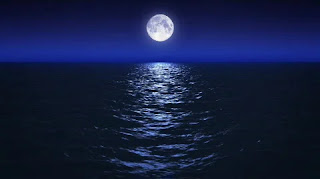The Night Ocean
R.H. Barlow with H.P. Lovecraft, "The Night Ocean" in The Californian vol. 4, no. 3 (Winter 1936).
Human beings have a primal and deep psychological connection to the ocean. As a source of fear, awe, and beauty, the sea represents the unknown, the vast, and the source from which all life evolved. In this story, Barlow handles a well-worn theme of cosmic horror—that is, our insignificance—in a thought-provoking way that manages not to just repeat the same genre theme we've come to expect from cosmicism. Sure the night ocean has the power to evoke feeling of smallness, but here we find so much more. The fractal-like structure of the story reveals themes that scale up and down and also repeat in other places.
While the narrator criticizes the vapid and puppet-like lives of the people in the tourist town, the night-ocean shows that his own "elevated" projects, which he most values, are also just as vapid and meaningless. The things we value and spend our time, energy, and resources on are revealed to be insignificant. But like the tide-influenced sea, our attitudes toward our lives and projects ebb and flow between being very invested and, in our more melancholic reflective moods, being very apathetic. And like the back and forth of the surf, there is a suggestion that the cosmos gives back something in return for what we invest.
Where does meaningfulness come from? What gives something that we engage in value? Buried in this story may be a response to the implicit pessimism of cosmic horror.




Comments
Post a Comment
What did you think about this story?